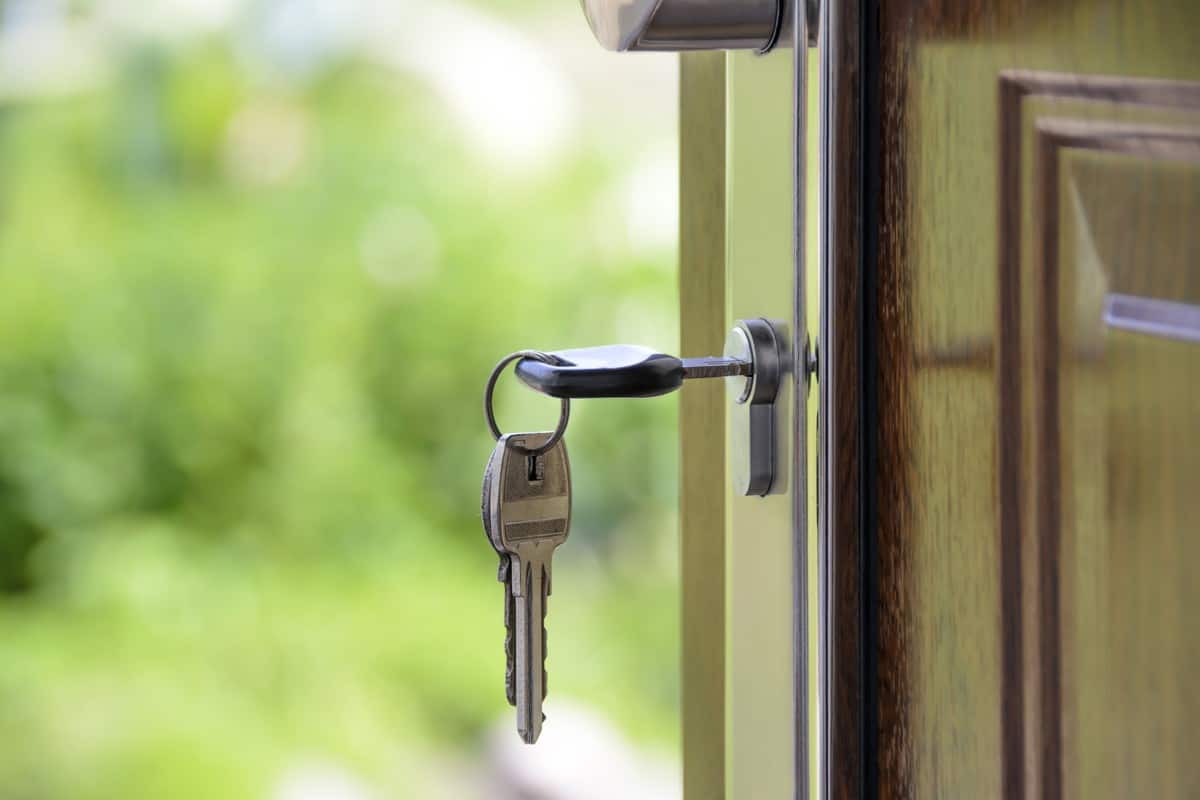Determining your home’s value is crucial for both home purchase and mortgage refinances. For home purchase, you can see if the seller’s price matches the actual home value. For mortgage refinancing, the appraisal can decide if the homeowner is even qualified to refinance at all. The team at LowerMyBills breaks down all the relevant questions you need answering regarding the home appraisal process.
What is a Home Appraisal?
An appraisal is when an un-biased 3rd party is paid to come to your home to determine your home’s value. The appraiser is a licensed and certified professional who is qualified to give their opinion of a home’s value. An appraisal is required for both home purchases and mortgage refinancing and is incredibly important. It usually takes about 30-45 minutes and the appraiser will take note of the home’s features. The appraiser will take photos of both the interior and exterior of the home, so it is important to clean the home and show off its best angles!
The appraiser will also compare your home to other properties that have recently been sold with similar features and size so that it’ll be a fair comparison and estimate. Once the appraiser has determined your home’s value, the lender will use this information to decide how much they will loan. The lender will also use this information to see if the mortgagee is eligible for a mortgage refinance.
How Much Does an Appraisal Cost?
The cost of an appraisal varies by state, but they typically cost about $300-$500 for a standard single-family home. If the home is bigger, then the appraisal will cost more because it will require the appraiser’s additional time because there is more area to cover. Appraisals are not paid at closing, they are paid at the time of the appraisal. This is because whether or not the loan closes, the appraiser still put in the work and completed the task. A buyer or seller can’t order an appraisal directly from a company of their choosing and will instead go through an appraisal management company. The buyer of the house is responsible for paying for the assessment and the lender sets the fee.
If you are looking to refinance your mortgage and you are confident that you will get the terms that you want, then paying for the appraisal may be well worth it. If you are not as confident as you would like, you can try to self-asses. You can search online to see how much other homes in your area are selling for to get an idea of how much your home is currently worth, but it may not be accurate.
What are the Appraisal Management Companies?
With Fannie Mae and Freddie Mac adopting updated rules to protect both lenders and borrowers from incorrect appraisals, lenders must now use AMC’s or Appraisal Management Companies that eliminate contact with the appraisers. While this causes some time delays, it more than makes up for making it a more trustworthy process.
What hurts a home appraisal?
According to the National Association of Realtor, home appraisal issues are the cause of 25% of real estate contract delays, 2nd only to obtaining financing (35%). The appraisal process is there to establish the fair market value of your house, but throughout the process, there are a lot of delays and issues to be overcome given the various professionals that are involved in the process. The ultimate objective of an appraisal is to provide an impartial analysis of the real worth of the property with the appraisal ultimately protecting the buyer against paying more for a home than what it’s worth.
There are a few main reasons why homes fail to appraise:
The price of the home is over market value
This typically occurs in rising real estate markets where buyers competing drive up the price of the house above market value and the buyers can’t pay over-market. For most situations, people bidding on a house don’t have more money to add as they have usually already set the amount they are willing to contribute to a down payment and closing costs. For this situation, it is key to go with a buyer who will pay cash or verify funds before going under contract.
Issues are found by the appraiser that adversely affect the home’s value
This is the case where an appraiser found an issue with the property that can lower the home’s value. This can be the condition of the home, permit-issues, etc. Some types of loans like an FHA loan also require that specific issues in the home like a broken window are fixed before a house can be appraised.
The appraiser does not have the regional knowledge
In some instances, an appraiser may not have the right understanding of the market value of the local area and can throw off the true market value that they come to. There are even times when an appraiser can rush through compiling data or uses short cuts that make the neighborhood comparison inaccurate.
How long does a home appraisal take?
In most cases, appraisals are delivered to your lender in two to seven days. There are three main steps to an appraisal that includes a physical visit and examination of the home by the appraiser, an understanding of recent sales of comparable homes in your neighborhood and an appraisal report that justifies the home’s value utilizing adjustments to the comparable sales in the area.
What do they look for in a home appraisal?
As mentioned above, an appraiser will both examine the physical house for around 15 minutes to 3 hours depending on the size and condition of the house. The appraiser will be looking at the condition of the house, grading it as poor to good to establish the home’s rating and greatly affecting the home’s value. The appraiser will also examine recent sales in the area within the prior 12 months of similar properties. Current software can return data on all recent sales and allows the appraiser to select appropriate comparable properties quickly to establish an accurate side-by-side comparison of properties. Finally, the appraiser will issue an appraisal report that is done in two forms. There are full narrative appraisal that is used for large commercial properties and can take up to 4 weeks to prepare. The second appraisal report, almost always done for residential properties, is a short form report that is usually less than 10 pages and can be completed in less than 6 hours. The residential appraisal should be able to be completed and delivered to your lender in less than a week.
Specifically, appraiser will be looking at the following exterior and interior factors of the home:
- Year of Home
- Location and Position of home
- Construction Quality of home
- Roofing and structure foundation
- Interior/Exterior condition quality
- Parking
- Square footage
- Size of bedrooms, bathrooms, and kitchens
- Number of bedrooms and bathrooms
- Utilities that are included
- Included appliances and quality/age of them
- Health and Safety equipment
- Code compliance
- Interior layout
- Neighborhood
When does the appraisal occur in the home sale process?
The actual home appraisal happens after an offer is accepted and details regarding price, repairs, and credits have been established. After all of this is established, the appraiser is then sent in to establish the fair market value of the home.
How to prepare for a home appraisal?
Below are some good tips on what you can do before a home appraiser shows up to make sure you have the highest home value appraisal you can:
- Update the paint on your house
- Do a deep clean on the inside of your home
- Clean up your yard
- Make sure your pets are not running around
- Avoid running sprinklers or watering your lawn before their arrival
Should you be present for the appraisal?
Typically, it is in the best interest of the appraiser that you are not present so you aren’t in the way of photos or measurements. It is, however, in the best interest of you to have your real estate agent present so they can answer questions about the house so the appraiser can make the most accurate assessment.
Can you challenge a low appraisal?
The short answer is yes you can. Generally, you have a few options:
Submit a Reconsideration of Value to the appraiser
This challenge needs to originate from the lender, but if you can bring evidence-based on comparables in the neighborhood, you may have a case.
Order a second appraisal
This requires you to switch lenders and may be costly, but if you feel the appraisal that you received is way below your expectations, it could be worth it.
Negotiate with the buyer
In many cases, the buyer of the home wants the home as much as you want to sell it so you may be able to work out a deal, even if the appraisal comes in lower than expectations. This includes reducing your asking price, having the buyer bring extra money to the table or meet somewhere in the middle. This is the part where your real estate agent should work on behalf of you and get the buyer to the negotiating table.
Why is an Appraisal So Important?
Seeing how much your home is worth is important for both home purchases and mortgage refinancing, but even more so for mortgage refinancing. If your home’s value has decreased over time and your home equity is now less than 20% of your mortgage, you’ll end up paying for PMI (private mortgage insurance). If your home’s value has decreased and now your mortgage costs more than what your home is worth, you are underwater and not eligible for a refinance.
Bottom Line: What You Should Know About a Home Appraisal
An appraiser’s job is to give you the home’s current value and nothing else. This means that when you get your home’s value, it isn’t guaranteed to increase over time. There are times when home values have gone down and the homeowner has lost equity. The appraiser is not responsible for giving the anticipated value of the home. If the home’s value has decreased, your appraiser did not mislead you to get your mortgage.



